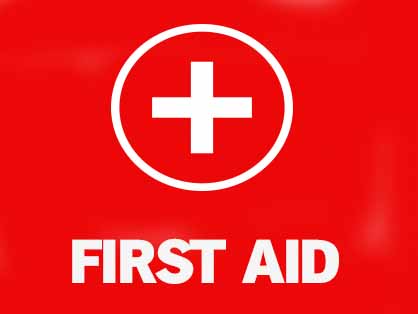Must-Have’s For Your Equine First Aid Kit
 By: Jeff Hall, DVM, senior equine technical services veterinarian, Zoetis
By: Jeff Hall, DVM, senior equine technical services veterinarian, Zoetis
It’s the perfect day for a ride. But while unloading your horse, he quickly steps back, lifting his head high to catch on the bare metal of your horse trailer. The gash is deep. What are your next steps?
Make sure you know the best plan of action to help minimize your horse’s risk in times of emergency.
Injuries such as cuts and bruises are common with a horse’s natural curiosity and flight-or-fight response. Other types of emergencies can include colic, choke, lameness and illness. Considering such potential threats posed to your horse, your knowledge of, and access to, a first-aid kit will be crucial to help ensure his overall safety when away from immediate veterinary service.
I recommend keeping a first-aid kit in not only your barn but also your horse trailer, should you ever need quick access to supplies when traveling with your horse. Listed below are key materials to keep stocked in your kit:
- Thermometer
- One roll of cotton, gauze pads, brown gauze, Tefla™ nonstick pad
- Adhesive wrap
- Diaper
- Leg wraps
- White tape
- Duct tape
- Latex gloves
- Eye saline solution
- Scissors
- Triple antibiotic ointment
- Stethoscope
- Hoof pick
- Cold pack
- Antimicrobial skin and wound cleanser
- Small flashlight with spare batteries
- Sharp knife
- Tweezers and hemostat
- DORMOSEDAN GEL® (detomidine hydrochloride)
If your horse becomes injured and fractious, or simply won’t cooperate, administering DORMOSEDAN GEL, a mild sedative available with a prescription from your veterinarian, can help restore safety and prevent further injury. It’s an easy-to-use option for needle-shy horses and horse owners who are uncomfortable giving an injection.
DORMOSEDAN GEL is administered by horse owners from a single-dose syringe underneath the horse’s tongue. Having tubes of the mild sedative on hand allows stressful or emergency situations — such as treating an injury, bandage changes, hoof trimming or shoeing, and minor non-painful procedures — to be less strenuous for the horse and horse owner. DORMOSEDAN GEL is a valued addition to equine first-aid kits.
I encourage you to work with the veterinarian on your team for additional guidance on emergency care and first aid. For more information and resources, please visit DormGel.com.
IMPORTANT SAFETY INFORMATION
Do not use DORMOSEDAN GEL in horses with pre-existing atrioventricular (AV) or sinoatrial (SA) block, with severe coronary insufficiency, cerebrovascular disease, respiratory disease, or chronic renal failure. Do not use in anesthetized or sedated horses, or in conditions of shock, severe debilitation or stress due to extreme heat, cold, fatigue or high altitude. Do not use in horses intended for human consumption. Handle gel-dosing syringes with caution to avoid direct exposure to skin, eyes or mouth. See full Prescribing Information.
About Zoetis
Zoetis is the leading animal health company, dedicated to supporting its customers and their businesses. Building on more than 60 years of experience in animal health, Zoetis discovers, develops, manufactures and markets veterinary vaccines and medicines, complemented by diagnostic products, genetic tests, biodevices and a range of services. Zoetis serves veterinarians, livestock producers and people who raise and care for farm and companion animals with sales of its products in more than 100 countries. In 2016, the company generated annual revenue of $4.9 billion with approximately 9,000 employees. For more information, visit www.zoetisUS.com.










